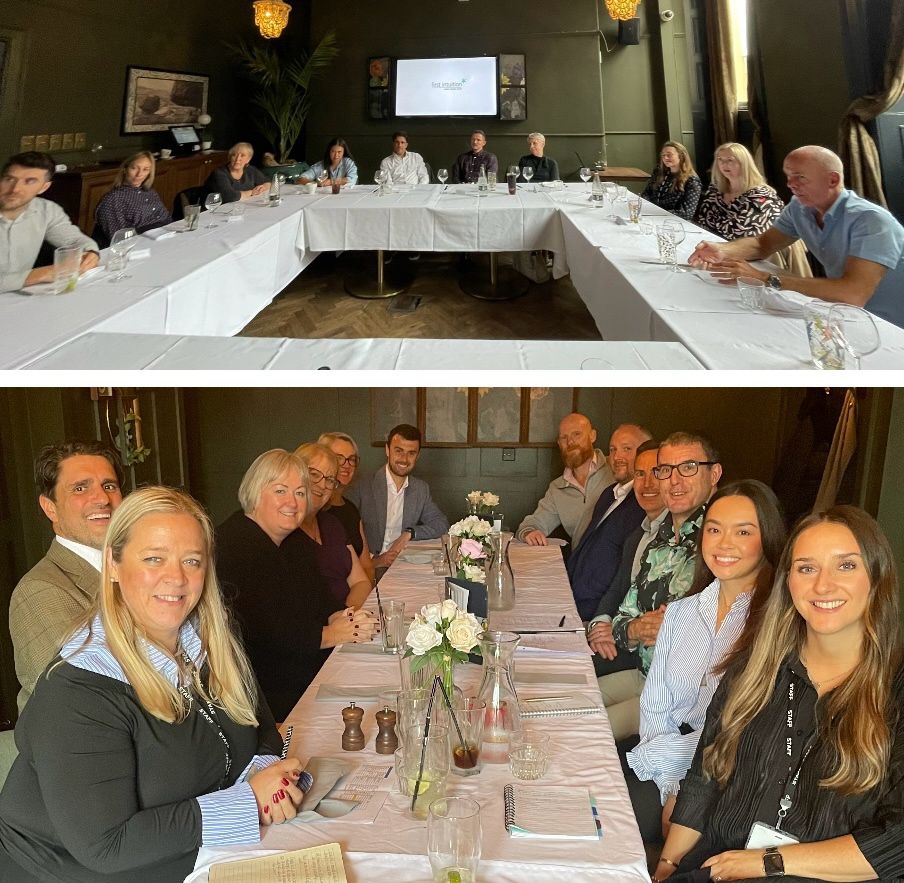Apprenticeship Funding and Social Mobility
The biggest talking point was the upcoming change to Level 7 Apprenticeship funding. From January 2026, funding will no longer be available for apprentices aged 22 or over when they start their programme.
For a profession that welcomes graduates and career changers, this could restrict access to training and create barriers to social mobility and diversity. Several attendees questioned whether an age cap aligns with the government’s own age discrimination policies, and many have begun lobbying for a review.
There’s speculation that a grant or alternative funding route for older learners may emerge, but the uncertainty is already prompting firms to rethink recruitment, training budgets, and long-term planning.
What’s clear is that employers don’t want to make hiring decisions based on funding availability rather than potential. The group strongly agreed: opportunity should be driven by capability, not cost.
Recruitment and Skills Gaps
Many firms are open to hiring school leavers, graduates, and career changers alike, focusing on who is best suited to the role. Interestingly, several employers have recently recruited professionals from teaching and care backgrounds who bring valuable transferable skills.
However, the soft skills gap among new entrants is widening. Attendees mentioned challenges such as communication etiquette, time management, and workplace readiness, issues they attribute partly to remote learning and limited in-person experience during the pandemic.
There was also concern that schools continue to promote university as the default route into accounting, despite apprenticeships offering debt-free, hands-on alternatives.
One participant noted that, over time, school leavers often outperform graduates financially thanks to earlier experience and tailored training. But the funding age cap could make recruiting those with non-finance degrees harder, as they’ll require more support and may not qualify for funding.
Adapting to Market and Generational Change
The group also discussed wider economic pressures, rising NI and wage costs, new employment legislation, and growing market caution. These are making organisations more hesitant to recruit, especially at leadership levels.
Outsourcing was seen as a short-term solution to manage capacity, though many voiced concerns about data security and client trust. Most agreed it can work for transactional tasks like payroll or bookkeeping, but that advisory and higher-level work should stay in-house.
Finally, the conversation turned to generational differences. With employees now spanning Gen X to Gen Alpha, workplace expectations are shifting. Younger professionals value flexibility, purpose, and recognition, and rather than expecting them to adapt, senior leaders may need to reflect on how they engage and motivate across generations.
The takeaway?
The accounting profession is evolving quickly. Policy changes, market pressures, and shifting workforce expectations are forcing firms to think differently.
But with open dialogue, early engagement, and a focus on people, not policy, we can continue to attract and develop the next generation of accounting talent.
If you would like to attend First Intuition’s next roundtable event, please email bd.yorkshire@fi.co.uk.
